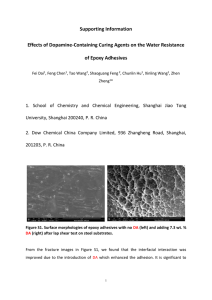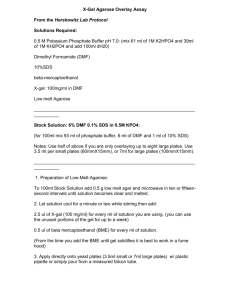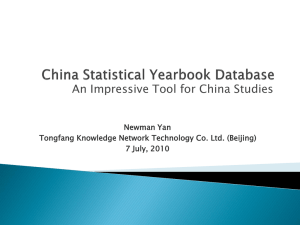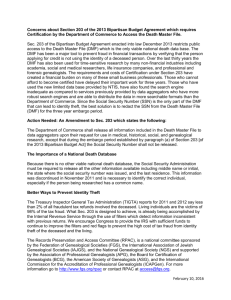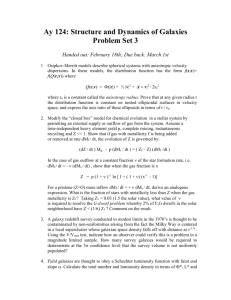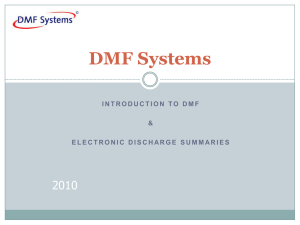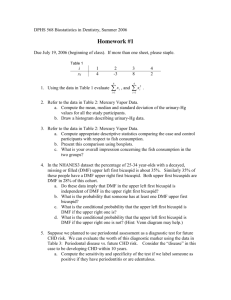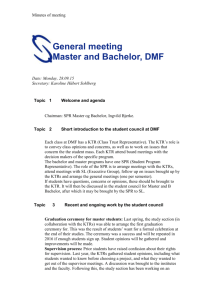Information Services Committee 10 th March 2010
advertisement
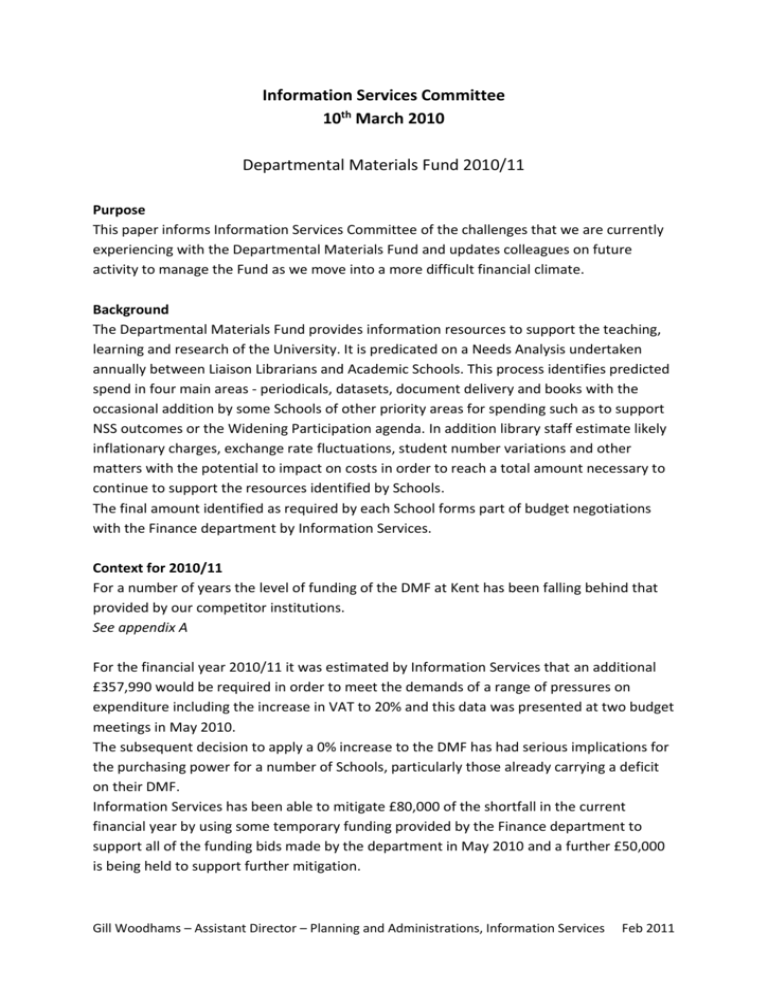
Information Services Committee 10th March 2010 Departmental Materials Fund 2010/11 Purpose This paper informs Information Services Committee of the challenges that we are currently experiencing with the Departmental Materials Fund and updates colleagues on future activity to manage the Fund as we move into a more difficult financial climate. Background The Departmental Materials Fund provides information resources to support the teaching, learning and research of the University. It is predicated on a Needs Analysis undertaken annually between Liaison Librarians and Academic Schools. This process identifies predicted spend in four main areas - periodicals, datasets, document delivery and books with the occasional addition by some Schools of other priority areas for spending such as to support NSS outcomes or the Widening Participation agenda. In addition library staff estimate likely inflationary charges, exchange rate fluctuations, student number variations and other matters with the potential to impact on costs in order to reach a total amount necessary to continue to support the resources identified by Schools. The final amount identified as required by each School forms part of budget negotiations with the Finance department by Information Services. Context for 2010/11 For a number of years the level of funding of the DMF at Kent has been falling behind that provided by our competitor institutions. See appendix A For the financial year 2010/11 it was estimated by Information Services that an additional £357,990 would be required in order to meet the demands of a range of pressures on expenditure including the increase in VAT to 20% and this data was presented at two budget meetings in May 2010. The subsequent decision to apply a 0% increase to the DMF has had serious implications for the purchasing power for a number of Schools, particularly those already carrying a deficit on their DMF. Information Services has been able to mitigate £80,000 of the shortfall in the current financial year by using some temporary funding provided by the Finance department to support all of the funding bids made by the department in May 2010 and a further £50,000 is being held to support further mitigation. Gill Woodhams – Assistant Director – Planning and Administrations, Information Services Feb 2011 Current Situation The shortfall in the DMF for 2010/11 has given rise to purchasing problems with both bundled journal/dataset packages and some individual titles. There have been a number of cancellations and the termination of the Springer deal, in particular, has given rise to concerns in academic Schools. Liaison Librarians have been tasked, since August 2010, with negotiating with their Schools to define which journals are of most importance and which are no longer affordable. Although we have good journal access information aggregated at University level we are currently unable to identify use at School level. We are aware that there are inconsistencies in the way Schools currently underwrite the costs of bundled packages and cross-School use is not currently well reflected in the charging mechanism. Unfortunately the deadline for the Springer deal, negotiated by JISC Collections, arrived before we were able to reach a conclusion on the overall value of the package to the University with those Schools who had been bearing the most significant costs unable to contribute at previous levels. We are now in discussion with Springer to re-establish access to those titles of most importance to the University. Ideally there would have been no break in service for access to the Springer titles and we intend to avoid a recurrence of this situation in the future. Future Planning The Needs Analysis for 2011/12 is underway with most Schools having submitted requirements through their Liaison Librarian and a bid for the university to support the DMF will be made during the budget planning round. A number of other activities will also be taking place to ensure that value for money is achieved with the available funding. a) Schools with an interest in journals currently available through the Science Direct deal will be asked to review their requirements as this deal is due to be renegotiated in Summer 2011. b) Information Services will be reviewing the outcome of RAPTOR, a JISC funded project due to report in March 2011, intended to enable universities to identify journal usage in such a way as to allow us to apportion costs to Schools based on usage of titles. c) Other costly deals/titles will be identified with a view to assessing the value for money of direct access compared to document delivery of needed volumes/articles Gill Woodhams – Assistant Director – Planning and Administrations, Information Services Feb 2011
